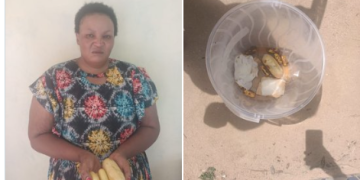A tragic incident during the ongoing traditional circumcision season in the Rift Valley has left one initiate dead and eight others hospitalized at Moi Teaching and Referral Hospital (MTRH) in Eldoret.
The complications stem from infections contracted while in seclusion camps following the circumcision rites.
Among the hospitalized, one patient is in critical condition with tetanus in the ICU, while others are being treated for sepsis-related complications.
MTRH CEO Dr. Phillip Kirwa confirmed the cases, noting that most of the patients are from Uasin Gishu County, with a few from neighboring regions.
He assured the public that the admitted initiates are receiving care and are in stable condition.
The circumcision period, a significant cultural rite of passage for the Kalenjin community, typically occurs during the December school holidays.
Thousands of boys undergo the traditional procedure and are then taken to seclusion camps to recover and receive cultural education.
However, medics have raised alarms about rising infections due to poor hygiene, inadequate nutrition, and the impact of heavy rains in areas housing the camps.
Last year, a similar situation led to over 40 hospitalizations and five deaths.
In response, a task force was formed involving county officials, elders, and the provincial administration to address issues like sanitation, nutrition, surgical practices, and waste management in seclusion areas.
While these interventions have reportedly reduced the number of cases, concerns remain.
Uasin Gishu County Health Executive Abraham Serem revealed that health officers have been placed on high alert to monitor and address any infections emerging in the camps.
Additionally, Uasin Gishu County Commissioner Eddyson Nyale has directed chiefs and elders to inspect seclusion sites to ensure compliance with health standards.
“Although these rites are sacred and highly safeguarded by the community, local leaders must ensure the safety and hygiene of these areas,” Nyale said.
Governor Jonathan Bii reiterated the commitment to safety, emphasizing the importance of adhering to health protocols to avoid preventable tragedies.
Meanwhile, community leaders and healthcare workers continue to collaborate on sensitization campaigns to improve outcomes for initiates during this culturally significant period.












































